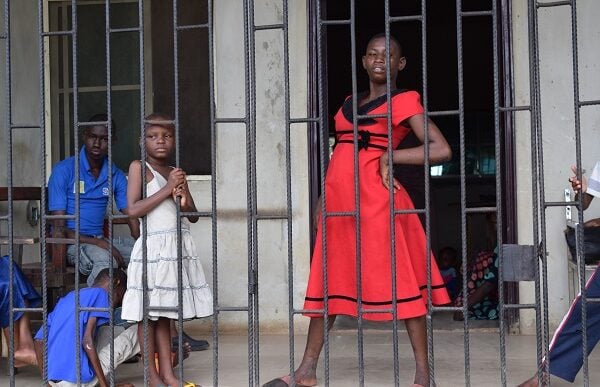BY SYLVESTER OJENAGBON
My son’s classmate, a 17-year-old young lady preparing for the school certificate exam, slumped and died shortly before the exam. This got me really worried! I wondered if there could be more to sudden deaths, as only cases involving older, working-class people had been largely reported. It turned out in the case of the young lady that she had a heart condition.
Although specific statistics on the exact number of sudden deaths are not readily available, there are indications that it constitutes a significant portion of all deaths, with a notable occurrence across various age groups and geographical locations. However, research shows that sudden deaths may have a higher prevalence in males than females, as indicated by a study showing a male-to-female ratio of 5.6:1 in one study population.
Sudden death, sometimes known as sudden cardiac death in the context of cardiac issues, is not a specific disease but rather a mode of dying and refers to death occurring unexpectedly, often within a short time frame after the start of symptoms. It is largely characterised by a cessation of heart function, although other causes may contribute. In forensic pathology, sudden death is often defined as death occurring within a specific timeframe, usually one hour of symptom onset or 24 hours of being observed healthy.
Advertisement
It is important to note that sudden death is not due to violence, trauma, or a deliberate act and can happen in seemingly healthy people, sometimes without prior symptoms.
Now, sudden collapse and death can be caused by a variety of cardiac and non-cardiac issues. Cardiac causes include coronary artery disease: Blockages in the coronary arteries can lead to a heart attack or sudden cardiac arrest, and sudden cardiac arrest can similarly be caused by various heart problems, including arrhythmias, leading to sudden death.
Conditions like hypertrophic cardiomyopathy (thickened heart muscle) can equally increase the risk of sudden death. In the same vein, arrhythmogenic right ventricular dysplasia, a heart condition that can lead to abnormal heart rhythms, can similarly be a factor. Sudden death can likewise be caused by Brugada syndrome, which is a heart condition characterised by abnormal electrical activity that can cause fainting.
Advertisement
The non-cardiac causes include pulmonary embolism, a blood clot in the lungs. A stroke can interrupt blood flow to the brain, leading to sudden collapse, while anaphylaxis, a severe allergic reaction, can cause a sudden drop in blood pressure and airway obstruction, potentially leading to death. Bleeding in the brain can equally cause sudden collapse and death, and a sudden and severe increase in blood pressure can lead to complications like stroke or aortic dissection, potentially resulting in death.
In some cases, seizures can be followed by collapse and, if severe, death, while certain drug overdoses can cause cardiac or respiratory arrest, leading to collapse and death. Severe injuries, especially to the chest or head, can also cause sudden collapse and death. In addition, some infectious diseases can cause inflammation of the heart or brain, leading to sudden collapse. Severe imbalances in electrolytes like potassium or magnesium can disrupt heart function and lead to arrhythmias and sudden cardiac death.
Also, factors like a family history of high blood pressure, high cholesterol, heart disease, and smoking can increase the risk of sudden cardiac arrest, and many heart conditions that cause sudden death have been found to have a genetic component. Furthermore, vasovagal syncope, a common fainting episode caused by a temporary drop in blood pressure and heart rate, often triggered by emotional stress, fear, or pain, can cause sudden death.
Now, the causes of sudden death can vary by age; for example, hypertrophic cardiomyopathy is a common cause of sudden death in young athletes, while coronary artery disease is more common in older adults. Certain behaviours, such as intense physical activity without proper conditioning, can increase the risk of some heart conditions. In addition, many heart conditions are undiagnosed, and people may not be aware of their increased risk until a sudden negative occurrence.
Advertisement
To minimise the risk of sudden death, particularly sudden cardiac death, it is important to focus on a healthy lifestyle and managing risk factors. This includes maintaining a healthy weight, avoiding smoking, eating a heart-healthy diet, and engaging in regular physical activity. Regular checkups to monitor blood sugar, blood pressure, and cholesterol are equally vital.
There is also a need to consume a balanced diet rich in fruits, vegetables, and whole grains; limit saturated and trans fats, cholesterol, and sodium; aim for at least 30 minutes of moderate-intensity exercise most days of the week; and maintain a healthy weight to reduce strain on your heart and other organs. It is similarly essential to quit smoking, as smoking significantly increases the risk of heart disease and other health problems, and limit your consumption of alcohol, as excessive alcohol consumption can negatively impact heart health.
It is equally important to work with your doctor to control your blood pressure through lifestyle changes and/or medication; manage cholesterol levels and keep blood sugar levels under control through exercise, diet, and medication if necessary; schedule regular checkups with your doctor to monitor your overall health and identify any potential problems early; and discuss with your doctor specific heart health screenings based on your risk factors.
Furthermore, familiarising yourself with the symptoms of a heart attack and other conditions that can lead to sudden death and seeking immediate medical attention if you experience any worrisome symptoms is essential. So is taking extra precautions to prevent another attack, if you have had one before, as well as practising stress-reducing techniques like deep breathing exercises, yoga, and meditation.
Advertisement
It is vital to seek support if you are feeling overwhelmed or experiencing grief after a loss and reach out to family, friends, or a mental health professional, where necessary.
We individually have a responsibility to protect our health and life and avert the tragedy of sudden death. By actively embracing preventative healthcare, such as routine check-ups and understanding personal risk factors, and embracing healthy lifestyle choices, we empower ourselves to identify and address potential threats before they become a hopeless emergency. Let us adopt a proactive and informed approach to personal well-being, as it is vital towards a future where the sudden loss of life becomes an increasingly rare occurrence.
Advertisement
Ojenagbon, a health communication expert and certified management trainer and consultant, lives in Lagos
Advertisement
Views expressed by contributors are strictly personal and not of TheCable.











